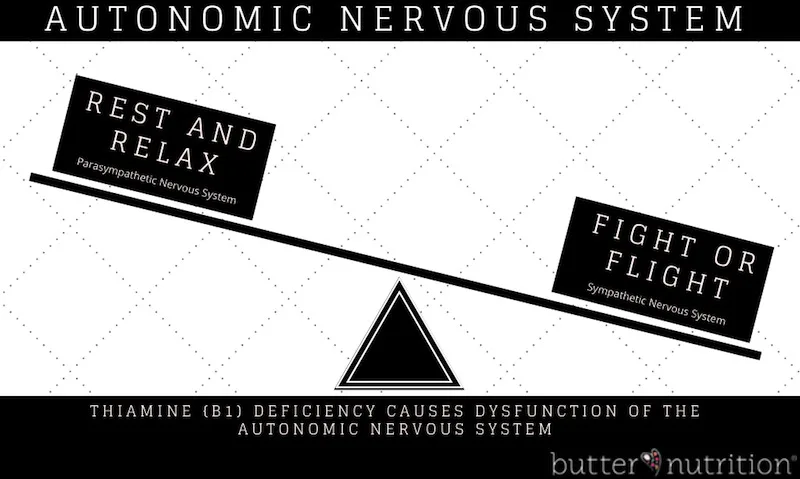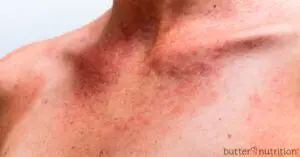 It seems like everyone is anxious these days. Whether you've struggled with anxiety for your whole life, it's pandemic induced, or it has slowly crept up on you over the years in a high functioning sort of way, anxiety is a huge happiness killer.
It seems like everyone is anxious these days. Whether you've struggled with anxiety for your whole life, it's pandemic induced, or it has slowly crept up on you over the years in a high functioning sort of way, anxiety is a huge happiness killer.
It can make simple decisions, interactions, and routine tasks painful as well as cripple relationships, careers and overall wellbeing.
Signs of Anxiety
The signs of anxiety manifest very differently from one person to another, but they generally involve some of the following signs and symptoms:
- excessive worry
- agitation
- irrational fears
- irritability
- restlessness
- fatigue
- trouble concentrating
- trouble sleeping
- panic attacks
Top Anxiety Hacks
While Rx medications are common for anxiety such as low-dose SSRIs (Lexapro, Prozac, Zoloft, Paxil, Luvox, etc.) or straight anxiety medication like Benzodiazepines, Buspirone and Beta Blockers, the side effects are often concerning for sensitive individuals.
Luckily, whether or not you choose to medicate, there are a large number of things you can easily do at home to support mental health naturally. Here's a few of my favorites:
1. Get More Thiamine (B1)
Did you know that Thiamine deficiency was not solved decades ago by enriching grains and deficiency is actually widespread? The implications of this have a huge impact on modern day health and disease, especially anxiety. [15]
You see, Thiamine is essential for your cells to create energy from food, and a deficiency can cause something called dysautonomia (dysfunction of the autonomic nervous system). This is a really big deal with huge implications for how your body handles stress, your digestion, healing and more. Your autonomic nervous system is like a seesaw. On one side, you have your parasympathetic nervous system, also known as the rest and relax arm of your nervous system. On the other side, you have your sympathetic nervous system, a.k.a your fight or flight response, that would would come in hand during times of stress. [14,15,16]
So essentially Thiamine deficiency can mean your body is no longer able to seesaw back and forth between between one or the other and you can actually get stuck in stress or fight or flight mode by a simple thiamine deficiency!
You can read way more about thiamine deficiency here, but getting more thiamine into your diet (pork, meat, macadamia nuts for starters) and consider supplementation of a highly bio-available form.
2. Eat A Big Breakfast
You'll probably want to graze over and ignore this one because it sounds so basic, but you really shouldn't (I put it first for a reason!).
You see, cortisol levels are usually at their highest point about 1-2 hours after waking up. This is especially true for those under more stress than normal. High cortisol combined with low blood sugar upon waking (from a lack of food/fasting overnight) is the perfect storm for anxiety to fester out of control. Luckily, the best way to combat this is to eat a substantial breakfast, and I'm not just talking about a bar or shake.
When you skip or skimp on breakfast (read: intermittent fasting when your body's not healthy enough for it), you're not doing anything to blunt the surging cortisol and knock your blood sugar back into check. While this suggestion may sound juvenile, I've seen it transform my clients' anxiety levels, mood, and energy levels throughout the day.
Try having some high protein pancakes tomorrow and see how you feel. The winning breakfast combination will contain nutrient dense protein, carbs, fat, and enough calories to fill up your body with energy to start the day. You may also want to skip the coffee or choose decaf instead to support a greater sense of calm.
3. Check for copper overload
Did you know having too much free coper in the body is a recipe for anxiety and chronic mental health struggles?
Find out more about exactly what you need to know to take inventory of your copper status here.
4. Improve Sleep
There's no doubt that lack of sleep can make one go crazy. And insanity is not exactly good for managing anxiety. While I won't bore you with sleep tips, I will show you were to find some of my favorites --->here<---.
5. Avoid Restrictive Diets (and dieting in general)
If you've ever been around someone on a diet or on one yourself, you'll know that anxiety and irritability are commonplace.
So, this won't be a newsflash, but your body likes regular abundant nourishment to keep anxiety at bay. When your body isn't getting what it needs to get you through the day, the stress hormone cortisol surges to signal your body to break down proteins and fats to create much needed energy. Triggering the release of cortisol unnecessarily is a perfect storm for anxiety. Instead, eat regularly throughout the day and include snacks if your body demands it to keep your cortisol and stress levels in a happy place.
Research also supports a strong link between restrictive diets and increasing anxiety. While some research suggests vegan and vegetarian dieters may be an increased risk for mental disorders such as anxiety and depression, some studies correlate this to changes in protein intake while some find the correlation more specific to diets with increased food restrictions of any kind. [11,12]
The take home message from my research here is eat the widest variety diet that you are able. Those diets with the least amount of restriction correlate to the widest variety of nutrition available to support mental health in the most natural way. And this will help ensure you get adequate amounts of nutrients that are known to help fight anxiety, including magnesium, zinc and B vitamins. [1,2,3]
6. Lithium
When most people hear the word lithium, they don’t think about a naturally occurring mineral found in tap water, grains and vegetables that is an important trace mineral for health.
Instead, what often comes to mind is the drug version of lithium (lithium carbonate) that has been used in mental health facilities to treat mania and bipolar disorders as far back 1871. Here, the mineral lithium is being used as a drug in very high dosages (pharmacologic psychiatric dosages start at around 300-600mg per dose, and are often taken multiple times per day).
But what about micro-dosing or low-dose lithium (typically defined as around 1-30mg of lithium orotate per day, taken at the lowest effective dose)? Doses so small that they more closely translate to the amount you could find in food? This is a supplemental version of lithium that most are unfamiliar with, which is unfortunate because naturally occurring and low-dose lithium has some great perks, including promising research that it can reduce anxiety.Get all the details on low-dose supplemental lithium here.
7. CBD
If CBD is legal where you live it can be a huge anxiety hack. While I'm not a fan of using it in large quantities or long-term due to toxicity concerns, it can work wonders in some people.
8. Breath and Mindset Work (+ skip the social media)
Another item on this list that will probably be overlooked...
But just for a minute consider that you have 175 brain cells which spy on your breath and alter your state of mind accordingly: if you have stressful thoughts, your breath changes, your stress hormones fire, and your body releases more cortisol.All this can push your body further deeper into the depths of anxiety, or away from it. The choice is yours.
So skip your anxiety-inducing social media habit and catch a few good audio books that can challenge your mindset and breathing practices.
Some of my favorites include — Breath: The New Science of a Lost Art (here) and Breaking The Habit of Being Yourself: How to Lose Your Mind and Create a New One (here).
9. Pay Attention to Your Protein Choices (!)
Well over a decade ago when I was first starting my nutrition career, one of my favorite nutritionists was Jennifer Adler.
I loved what I learned from her about the energetics of food, something you've probably never heard of.
According to Adler: "For carnivores, the type of meat we eat affects us as well. Although its not common practice in the United States, traditional forms of medicine always consider the energetics of food; energy from cow meat affects us differently than energy from chicken meat, for example. When I walk into a room full of people I've never met, I can often tell within the first few minutes of talking to them what types of meat proteins people eat by the way they act. Nervous, flighty women with lots of sparkly jewelry typically eat a ton of chicken. Slow-talking, methodical folks are beef eaters. Determined, self-preserving types or natural dissidents are often big fish eaters; they swim upstream."[4]
If this describes you, just getting more calming beef into your diet may be the ticket, or perhaps you may need more chicken energy or fish for more perseverance. Give it a try and see how you feel.
10. Address Your Gut
Because 95% of serotonin is manufactured in the gut by your gut bacteria and the neurotransmitter serotonin is often examined when talking about anxiety, addressing gut health is key. Gut dysbiosis can change the delicate balance of your gut microbiome influencing the synthesis of neurotransmitters. [9,10]
I personally use two gut tests (urine and stool) in my nutrition practice to help get to the root of gut issues.
11. Check in with Your Fats (this is a big one!)
Did you know your fat intake can have a real impact on how you feel?
Specifically, I'm talking about your intake of omega 3 and omega 6 polyunsaturated oils. Research shows getting the right amounts of omega 3 fatty acids can support mental health symptoms such as anxiety, depression and anger. [7,8,13]
Fatty acid testing (through an at-home finger poke method) is one of my favorite ways to assess your own omega fatty acid balance, so you can find out if therapeutic levels of omega-3s are needed to shift the balance of fats in your body. Learn more here.
12. Check for Pyrroles
Pyrroles disorder is an often unknown mood and stress disorder. While it can be genetic in nature, it can also be triggered by oxidative stress. Those with Pyrroles lose an abnormal amount of zinc and B6 leading to nutritional deficiencies that destabilize mood homeostatsis.
Get all the details on Pyrroles disorder here.
13. Find out your Methylation Status
Most people know that methylation imbalances can cause anxiety symptoms. But what can you do about it? Knowing your genetic MTHFR status tells you about your methylation 'potential' but isn't really helpful to tell you what is going on with your methylation in the NOW.
Get all the details you need to know on methylation here.
Get Data on Your Body So You Can Stop Guessing
While there are a number of health and nutritional factors that play into anxiety, they can often be tough to pinpoint without testing.
And because of the nutritional, gut and lifestyle factors that contribute to anxiety, knowing what's not working can help you make it right. Get some data on your body using my favorite modalities: hair analysis to assess minerals, urine and stool testing to address gut issues + environmental concerns, and fatty acid testing to assess cellular inflammation. Learn more here.
The more you know about you, the more you can work to push your body in a new direction of mental health and wellness.
Do you have anxiety? What works best for you?
PIN IT:
References:
1. https://pubmed.ncbi.nlm.nih.gov/24130388/
2. https://www.ncbi.nlm.nih.gov/pmc/articles/PMC3198864/
3. https://pubmed.ncbi.nlm.nih.gov/15582752/
4. Passionate Nutrition by Jennifer Adler
5. https://www.healthline.com/health/morning-anxiety#2
6. https://www.mdpi.com/1420-3049/24/9/1694/htm
7. https://pubmed.ncbi.nlm.nih.gov/30127751/
8. https://pubmed.ncbi.nlm.nih.gov/21784145/
9. https://www.apa.org/monitor/2012/09/gut-feeling
10. https://www.ncbi.nlm.nih.gov/pmc/articles/PMC4259177/
11. https://pubmed.ncbi.nlm.nih.gov/22676203/
12. https://pubmed.ncbi.nlm.nih.gov/30404246/
13. https://www.ncbi.nlm.nih.gov/pmc/articles/PMC2275606/pdf/nihms-41356.pdf
14. https://pdfs.semanticscholar.org/7c1b/53c8c4dbfdccf441a16bcc1464b2b26c9c55.pdf
15. Lonsdale, Derrick, MD. Thiamine Deficiency Disease, Dysautonomia, and High Calorie Malnutrition. 2018.
16. https://www.ncbi.nlm.nih.gov/pmc/articles/PMC3046018/







Sarah
Thank you, that was interesting and enlightening, although I was surprised not to read my top hack for anxiety, which is magnesium. Our bodies are amazing, intricate creations with so many needs!
Tara
I had horrendous anxiety and heart palpitations develop last year. I thought it was stress related due to the pandemic (I wasn't stressed by the virus itself, just TPTB's response to it).
After realising that it all started 2-3 months after my youngest finished breastfeeding - and that it got worse just before my period and during the first week, as well as around ovulation - I surmised that it might be symptoms of perimenopause and asked for HRT from my GP. The heart palpitations are now almost non-existent (meaning I can do heavy weight training and drink coffee again!), and the anxiety is gone.
I just thought I'd share this, as women in their early to mid 40s experiencing anxiety issues which are idiopathic in nature, might actually benefit from enriching their depleted oestrogen levels. It's worth a thought, as my GPs were absolutely useless and never suggested HRT when I told them what my symptoms were.